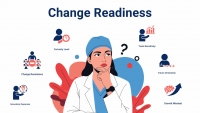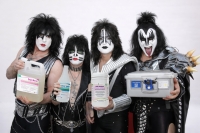
Facts Matter
Every person has a right to their opinion, but no one has a right to be wrong in their facts. It’s difficult separating fact from fiction, especially when you hear about it on the news or find it on the internet. Worse yet is to be pushed to accept a factoid from a pushy sales rep, vendor, or politician. John Adams is famously quoted as saying, "Facts are stubborn things; and whatever may be our wishes, our inclinations, or the dictates of our passion, they cannot alter the state of facts and evidence". I’ve learned my lesson: trust but verify. Fact checking is crucial because it protects against misinformation, and builds strong, accountable relationships. While trust is essential for functioning societies and interpersonal relationships, verification provides a necessary safeguard against the dangers of blind faith, human error, and malicious deception. Sorry to say it’s simply too easy to accept misinformation when you believe you are hearing it from a reliable source.
Misinformation is on the Rise
We all know the bedtime story about Chicken Little, who was hit on the head with an acorn and went on to create a panic thinking that the sky was falling. Chicken Little could have spared their entire misadventure with a little fact checking, something that is sorely missing in today’s world. Recently, I had to go to court to testify about equipment that was sold as “new” but was in fact manufactured over a decade ago assembled with obsolete software and pieced together with several incompatible component parts. We trusted the vendor to sell us what we needed, but we did not verify. The documents stated "NEW," but we were misled by false claims and aggressive sales tactics. The healthcare industry is not immune to misinformation either. From shady suppliers intentionally publishing misleading IFUs, to threatening users for using products made by other companies.


Separating Fact from Fiction
Some folks take an IFU as gospel. Let’s consider some examples to better understand what we mean by misinformation and how it can be interpreted as a requirement. If you were to purchase a car, no one would require you to use only GM fuel. If you purchase a Maytag washer, is anyone acquainted with Maytag detergent? No, it doesn’t exist. Nevertheless, in healthcare, an IFU will often state that the manufacturer’s detergent should be used in their washers and by implication hear “must be used” or told “can void the warranty.” Here’s one that is close to home. A vendor can say that their product works better, faster and you have no need to dry. Afterall, water in container systems is sterile. However, once you pop the lid the moist contents are now exposed to bioburden, contamination and a host of microorganisms you can’t see but are ever present.
The Joint Commission Weighs In
Manufacturers are responsible for developing IFUs to meet regulatory requirements and users refer to them for guidance. According to the Medical Device Regulation, the term “instructions for use” refers to the information provided by the manufacturer to inform the user of a device’s intended purpose and proper use, and of any precautions to be taken. It is part of risk management and enables the user to use devices safely and avoid errors. Nonetheless, an IFU can also be a marketing tool, to promote a manufacturer’s ancillary products or consumables. Understanding what The Joint Commission says may correct a misconception. “The Joint Commission expects that when conflicts with the manufacturer recommended instructions or products are identified, the organization contacts the manufacturer's technical services to resolve these conflicts. This resolution should also include contacting the manufacturer of the alternative product, if applicable, to determine if they can provide additional information regarding compatibility.”

What Can We Do When We Hear Misinformation?
The FDA has provided information that can help us identify and address misinformation. Click here to read more.
- Identify misinformation
- Check the source and cross check with reliable sources
- Use science and critical thinking to make choices
- Direct folks to a reliable source
- Don’t contribute to the spread of misinformation
- Request the FDA 510k or an independent validation study
Case Medical Clarity
We are at a time in history where there are little checks and balances. Even Facebook as walked away from fact checking. At Case Medical, we believe in patient and staff safety as well as sustainability and truthful information. We avoid the use of hazardous chemicals. We test and validate our products in independent laboratories and then certify them using government agencies. We avoid exaggeration and have been very careful with the words we use including the research we share about prion degradation using our BioGone pre-treatment. We strive to give you the facts and information you need to make informed decisions, that’s why we’re totally transparent.

Simply, go to this page on our website for all related product documentation. You’ll find a listing of our FDA 510K’s for our SteriTite containers on the site. Go to the EPA Safer Choice website to confirm our label claims. The fact is, we want you to have all the facts when deciding on a purchase for your facility. Our claims are based on science and rigorous validation testing. We do everything possible to have outside, reliable sources like the FDA and EPA review our product validations and claims so you don’t have to take our word for it, because they are independently certified.
Connect with Case Medical on social media for more content!
LinkedIn
FaceBook
Kindest Regards,






